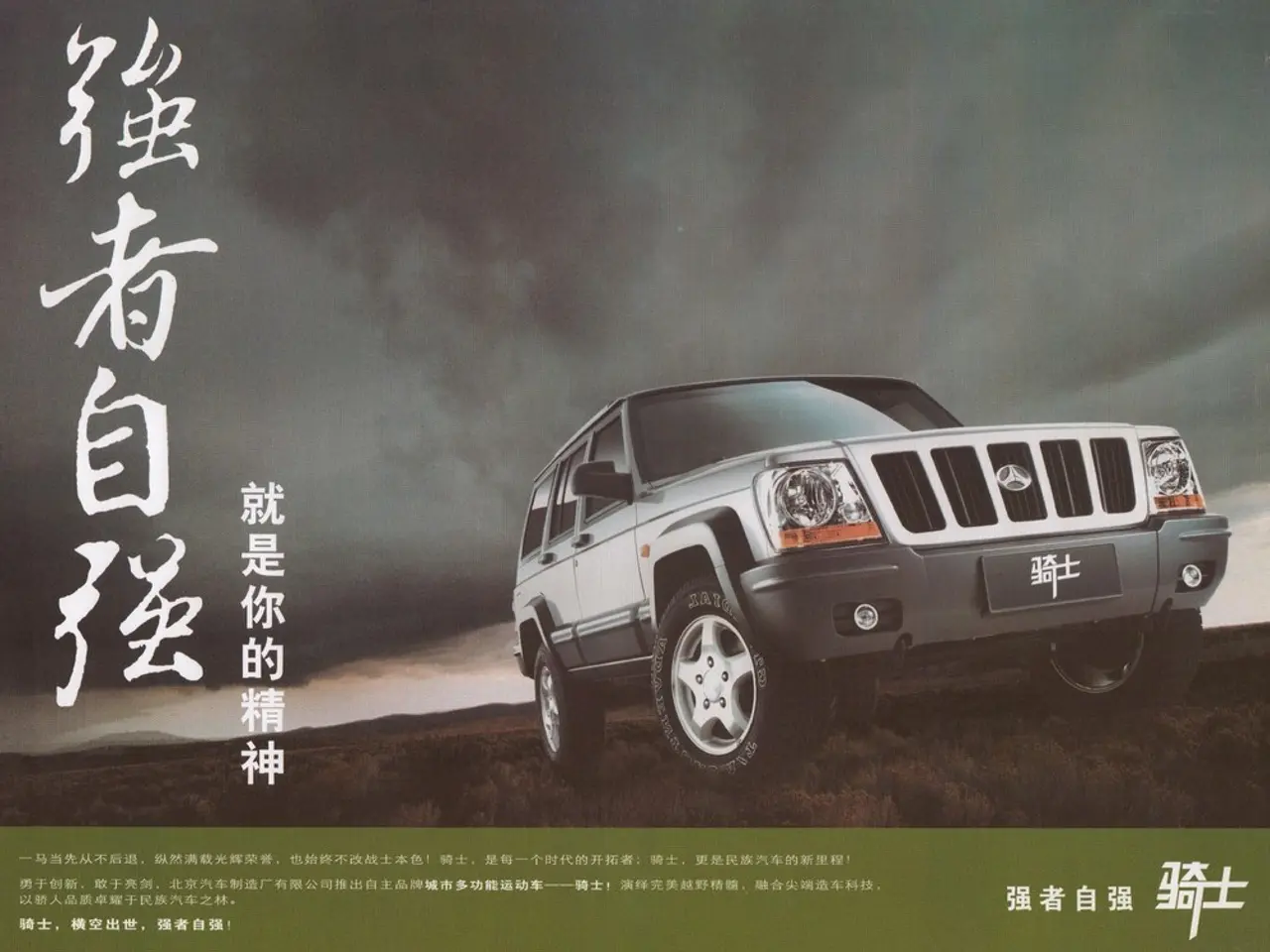Revealing Eight Taiwanese Military-Industrial Companies on China's Export Control Blacklist: Investigation Unveiled
China Imposes Export Restrictions on Taiwanese Military-Related Entities
In a significant move, China's Ministry of Commerce has added eight Taiwanese entities to its export control list. This decision, aimed at maintaining national sovereignty and territorial integrity, will disrupt production at these firms and impact the production of various military equipment, including bulletproof vests and protective gear.
The eight entities, primarily involved in military-related projects such as aerospace, defense equipment, and shipbuilding, are: Aerospace Industrial Development Corp. (AIDC), Geosat Aerospace & Technology, National Chung-Shan Institute of Science and Technology, JC Tech, CSBC Corp., Taiwan, Jong Shyn Shipbuilding Group, Lungteh Shipbuilding, and GWS Technologies (also known as Gong Wei).
AIDC, a key player in Taiwan's military equipment supply, focuses on aerospace and defense. National Chung-Shan Institute of Science and Technology, Taiwan’s primary defense research and development institute, is also on the list. CSBC Corp., Taiwan, a major player in shipbuilding with naval projects, and Jong Shyn Shipbuilding Group and Lungteh Shipbuilding, both specializing in shipbuilding with defense contracts, are also affected. GWS Technologies, linked to technology with potential military applications, completes the list.
These entities play a crucial role in Taiwan's military-industrial complex, particularly in the aerospace and naval defense sectors. Taiwan's reliance on the Chinese mainland for components and assembly in the drone industry is noteworthy. Some Taiwanese companies also engage with the military under the guise of civilian operations, contributing to the Lai administration's push for "seeking independence through military buildup."
The move by China imposes export restrictions on dual-use items, those with both civilian and military uses, halting Chinese exports of such goods, software, or technology to these firms. This action is described by Chinese authorities as a measure to safeguard national sovereignty, security, and to counter what China calls "Taiwan independence" separatist activities.
The Chinese mainland holds a dominant position in the global bulletproof fiber market, with over 70 percent share. Many Taiwanese military manufacturers rely heavily on the Chinese mainland for components, raw materials, and key hardware and software. The move will directly impact key technologies used in Taiwan's domestically developed warships and other defense projects.
Professor Zheng Jian states that Chinese mainland elements are deeply embedded in the industrial chains of Taiwan's military manufacturers. The move serves as a deterrent to Taiwan's ambitions to develop indigenous weapons. For instance, JC Technology Inc. has developed the Flyingfish suicide drone, a Taiwanese version of the Switchblade. Aerospace Industrial Development Corp. is responsible for developing military aircraft models and participating in the maintenance and upgrade of F-16 fighter jets purchased by Taiwan's military from the US.
CSBC Corporation, Taiwan is a major contractor for Taiwan's navy, involved in the development of various naval vessels and Taiwan's self-made submarine. Geosat Aerospace & Technology Inc. primarily focuses on the development of drones. The listed enterprises are key military-industrial research and manufacturing institutions in Taiwan, covering various fields such as aviation, missiles, ships, and submarines.
This decision could potentially reshape Taiwan's military-industrial landscape, prompting a shift towards greater self-reliance and independence in military technology production.
- The export restrictions imposed by China on Taiwanese entities may also have impacts beyond military-related entities, possibly influencing the broader landscape of politics, general news, and crime-and-justice, as Taiwan seeks to navigate these challenges with increased importance on self-reliance and independence.
- As various Taiwanese military-related entities such as AIDC, Geosat Aerospace & Technology, and CSBC Corp., Taiwan are now subject to export restrictions due to China's decision, the ensuing disruption in production could coincide with a rise in war-and-conflicts discussions and increased focus on crime-and-justice, including potential illicit procurement of essential military components.






